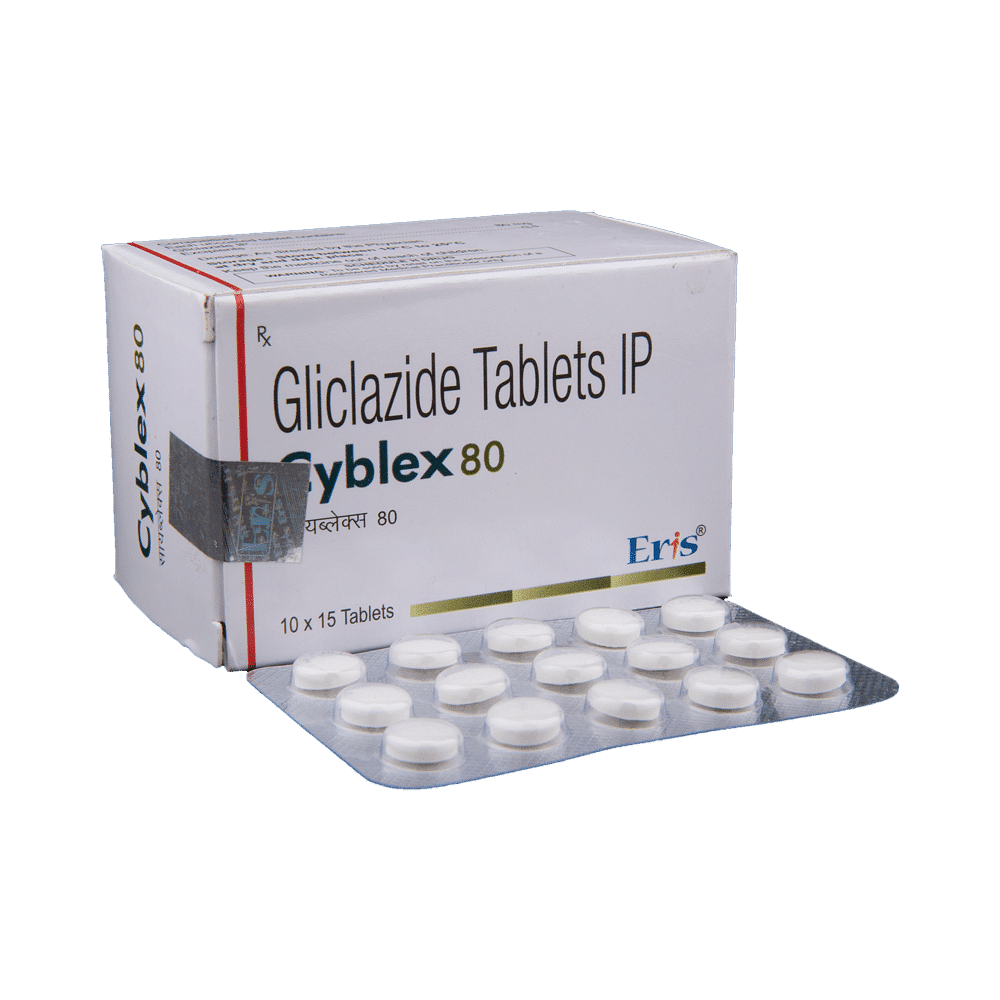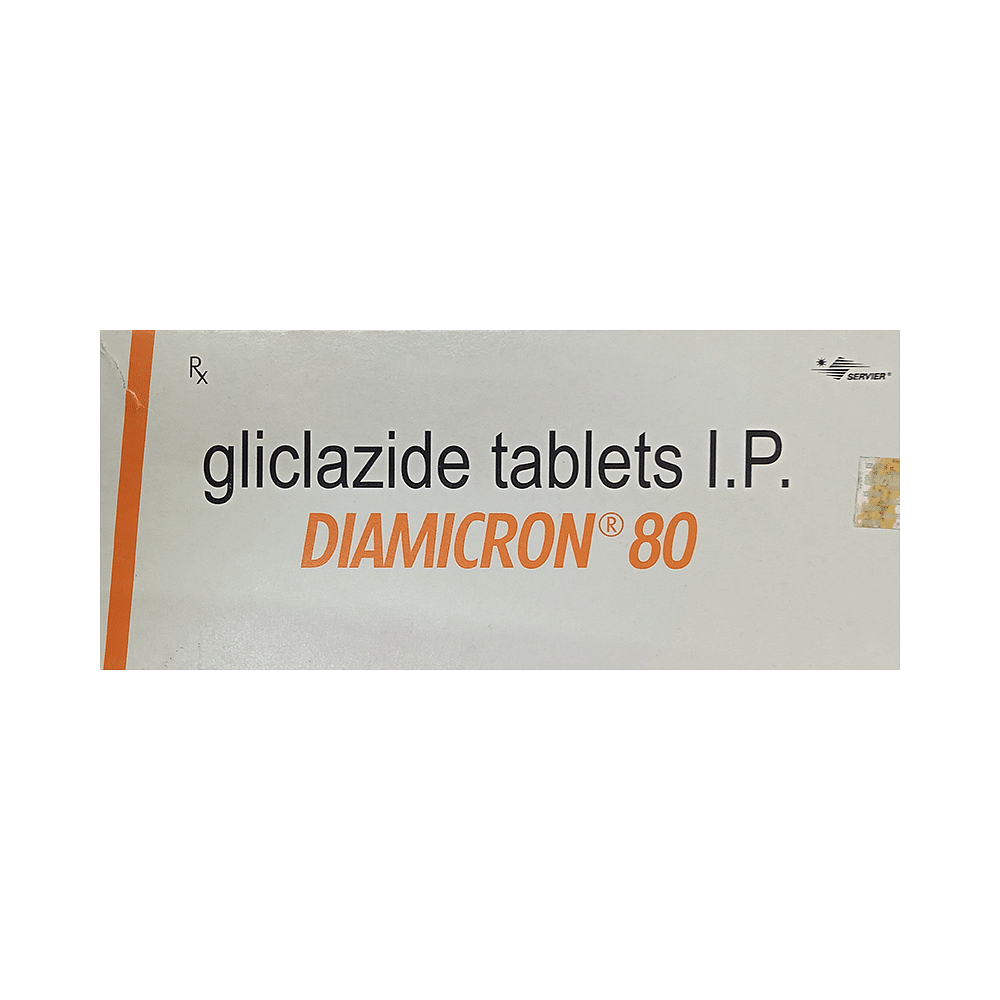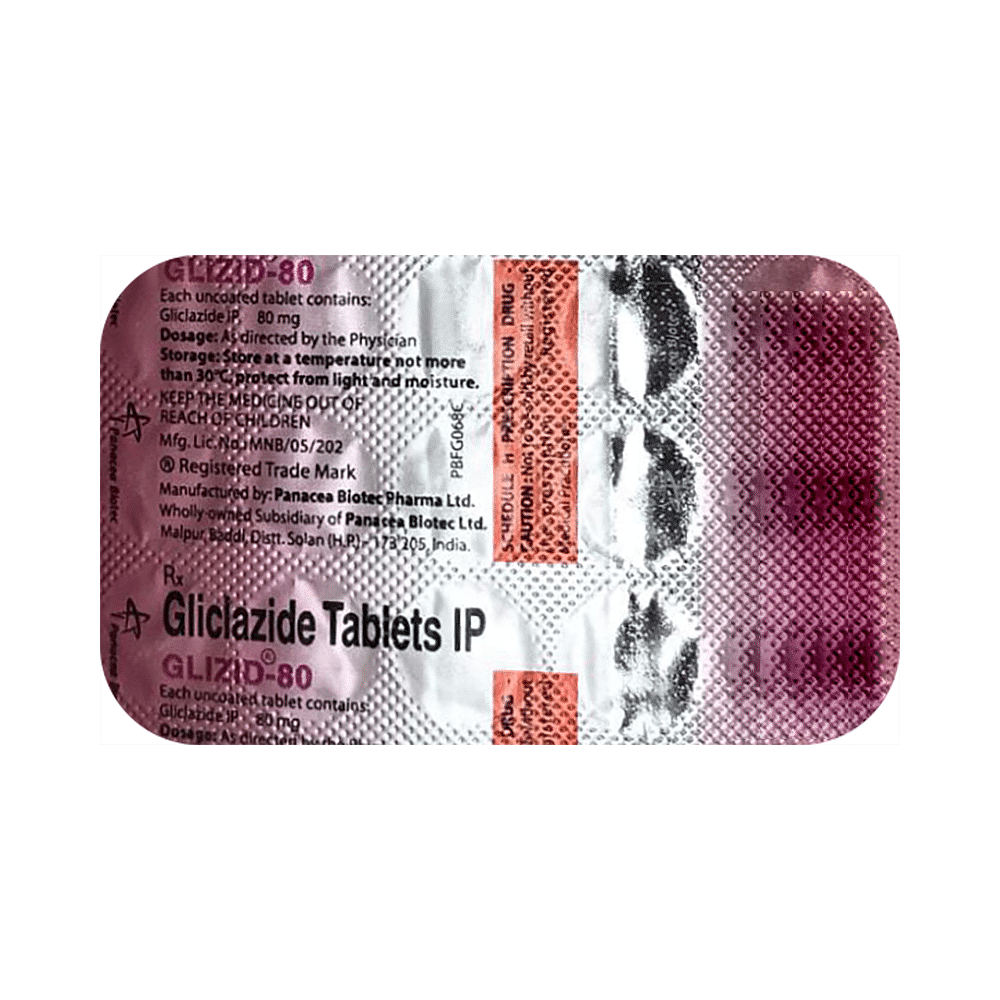
Gezide 80mg Tablet
Manufacturer
Grampus Labs
Salt Composition
Gliclazide (80mg)
Key Information
Short Description
Gezide 80mg Tablet is a medicine used to treat type 2 diabetes mellitus in adults. It belongs to a group of medicines called sulfonylureas and helps control blood sugar levels in people with diabetes.
Dosage Form
Tablet
Introduction
Gezide 80mg Tablet may be prescribed alone or along with other medicines. It should be taken with food. Take it regularly at the same time each day to get the most benefit. Your doctor will decide what dose is best for you and this may change from time to time according to how it works. Keep taking this medicine even if you feel well or your blood sugar levels are controlled. If you stop it without consulting your doctor, your blood sugar levels could rise and put you at risk of kidney damage, blindness, nerve problems, and loss of limbs. Remember that it is only part of a treatment program that should also include a healthy diet, regular exercise, and weight reduction as advised by your doctor.
Directions for Use
Take this medicine in the dose and duration as advised by your doctor. Swallow it as a whole. Do not chew, crush, or break it. Gezide 80mg Tablet is to be taken with food.
Safety Information
Side Effects
No common side effects listed.
Alcohol Warning
It is unsafe to consume alcohol with Gezide 80mg Tablet.
Breastfeeding Warning
Gezide 80mg Tablet is unsafe to use during breastfeeding. Data suggests that the drug may cause toxicity to the baby.
Pregnancy Warning
Gezide 80mg Tablet may be unsafe to use during pregnancy. Although there are limited studies in humans, animal studies have shown harmful effects on the developing baby. Your doctor will weigh the benefits and any potential risks before prescribing it to you. Please consult your doctor.
Interacting Medicines
Trimethoprim Amiloride Atenolol Beclometasone
How it works
is an antidiabetic medication. It works by increasing the amount of insulin released by the pancreas in order to lower the blood sugar levels.
Quick Tips
Take it shortly before or with the first main meal of the day (usually breakfast). Avoid skipping meals. Be careful while driving or operating machinery until you know how Gezide 80mg Tablet affects you. It can cause hypoglycemia (low blood sugar level) when used with other antidiabetic medicines, alcohol, or if you delay or miss a meal. Always carry some sugary food or fruit juice with you in case you experience hypoglycemic symptoms such as cold sweats, cool pale skin, tremor, and anxiety. Your doctor may check your liver function regularly. Inform your doctor if you develop symptoms such as abdominal pain, loss of appetite, or yellowing of the eyes or skin (jaundice).
Related Medicines

Cyblex 80 Tablet

Diamicron Tablet

Glizid 80 Tablet

Reclide 80mg Tablet

Glicol 80mg Tablet

Glicsaan 80mg Tablet

Glyred 80mg Tablet

G Zide 80mg Tablet

Glimicron 80mg Tablet

Intragly 80mg Tablet
Frequently asked questions
What is the optimal timing for taking Gezide 80mg Tablet?
Take Gezide 80mg Tablet as instructed by your doctor, ideally before meals to effectively control post-meal high blood sugar levels. For once-daily dosing, take it in the morning with breakfast along with a glass of water.
How does Gezide 80mg Tablet differ from metformin?
Gezide 80mg Tablet and metformin are not identical, despite both being used to treat type 2 diabetes. While Gezide 80mg Tablet enhances insulin secretion by the pancreas, metformin improves the functioning and effectiveness of existing insulin in the body.
Can I take Gezide 80mg Tablet with metformin?
Gezide 80mg Tablet can be taken with metformin only if prescribed by your doctor. Your healthcare provider may recommend taking both medications together to manage uncontrolled sugar levels. However, combining these treatments may lead to low blood sugar, especially if you skip a meal or engage in excessive physical activity.
Is Gezide 80mg Tablet safe for individuals with kidney issues?
Gezide 80mg Tablet is generally not harmful if your kidney function is normal. Inform your doctor of any pre-existing kidney problems to assess whether it's suitable for use, as the medication is primarily excreted by the kidneys.


